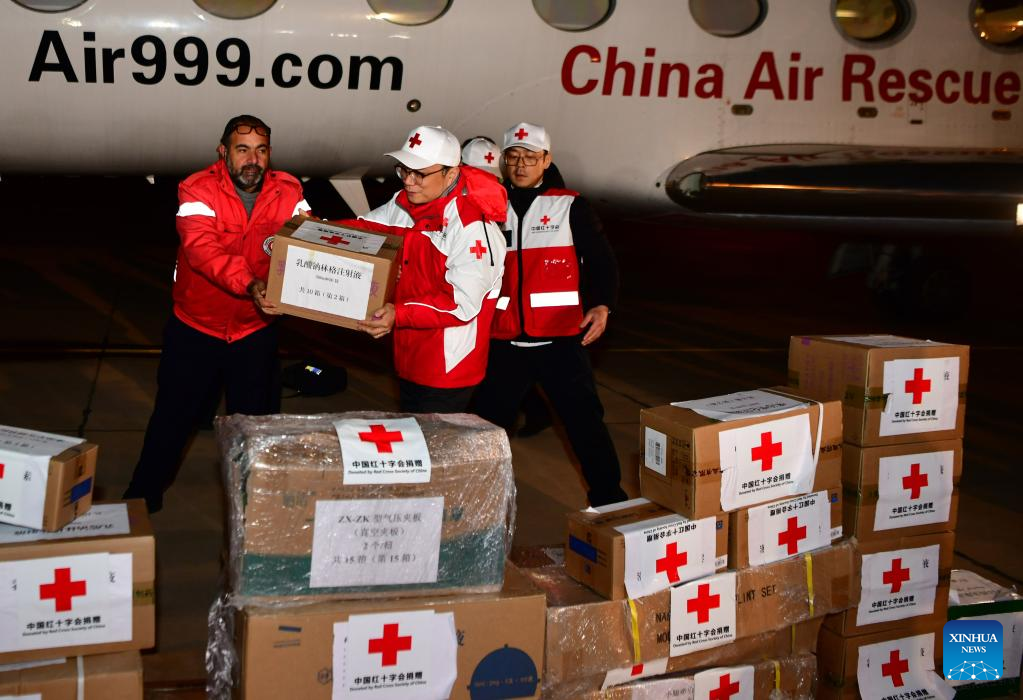
China is an important contributor to global humanitarian efforts and a key partner of the International Committee of the Red Cross in a world of intense conflicts, said a senior official of the organization.
"The ICRC is trying to ensure that international humanitarian law is a political priority everywhere in the world," said Pierre Krahenbuhl, director-general of the ICRC, in an exclusive interview with China Daily in Beijing last week. "And when a country like China takes a position on that, we think it's important, and we want every single country in the world to take this very seriously."
Krahenbuhl said an important and resonant message from China came when President Xi Jinping highlighted, during a meeting in September with ICRC President Mirjana Spoljaric, that humanitarianism is the great consensus that can unite different civilizations.
Dialogue, which is essential to resolving conflicts and restoring peace, also holds the key to ICRC's cooperation with China since it established its regional delegation for East Asia in Beijing in 2005
"I find that a voice like China's is heard on the need to respect civilians in times of armed conflict, on the importance of protecting prisoners of war, as well as (the importance of showing) respect to women and children and refugees, displaced persons in times of war," he said.
ALSO READ: China sees increase in registered nurses, totaling 5.63m
Disrespect for international humanitarian law is documented every day, evidenced by the loss of lives and suffering inflicted by violence in several countries and regions.
"We value when states take a leading voice on calling for better respect," Krahenbuhl said, noting that China was among the first signatories to the Geneva Conventions of 1949, which have been the cornerstone for upholding human dignity amid armed conflicts for 75 years.
When China ratified the Geneva Conventions in 1956, then premier and foreign minister Zhou Enlai said in his message that the nation recognizes these conventions because it found them to be generally conducive to peace among all countries, Krahenbuhl said.
"China is a very important country, and as a state party to the Geneva Conventions, it plays an important role in highlighting the importance of respecting the rules during times of armed conflict."
Krahenbuhl made a visit to China last week — his first overseas trip since he assumed the role of ICRC director-general in April — to hold a series of meetings with Chinese government bodies and attend events including one to celebrate the 120th anniversary of the Red Cross Society of China, which was held in Beijing on Wednesday.
"The ICRC is really developing contacts and dialogue in many parts of these Chinese establishments and we welcome that," he said.
ALSO READ: China ready to work with development in Northeast Asia
He noted that the Red Cross Society of China has not only played a significant role at a national level in delivering emergency response to natural disasters, enhancing first-aid capabilities and promoting blood donations, but has also contributed to international humanitarian efforts such as supporting the ICRC's operations in Afghanistan and Ukraine in recent years.
"There is another dimension that we value greatly, which is the fact that the Red Cross Society of China has invested a lot of energy and attention in developing its international academy that focuses strongly on the humanitarian principles and international humanitarian law," he said.
As the year 2024 marks the 75th anniversary of the Geneva Conventions, Krahenbuhl said that disrespect for the rules of the conventions can lead to increased suffering and greater destruction, while better respecting the rules of international humanitarian law is a step toward resumption of peace talks.
Dialogue, which is essential to resolving conflicts and restoring peace, also holds the key to ICRC's cooperation with China since it established its regional delegation for East Asia in Beijing in 2005.
"When we opened this delegation here in Beijing, our objective was to deepen our understanding of China's perspective and experiences related to development, to cooperation, to peace," he said.
Having observed the "very positive and important" development of such work in China, Krahenbuhl said the ICRC "will always be very interested — and I will always be very interested — to continue the conversation with the Chinese leadership and with Chinese institutions".


